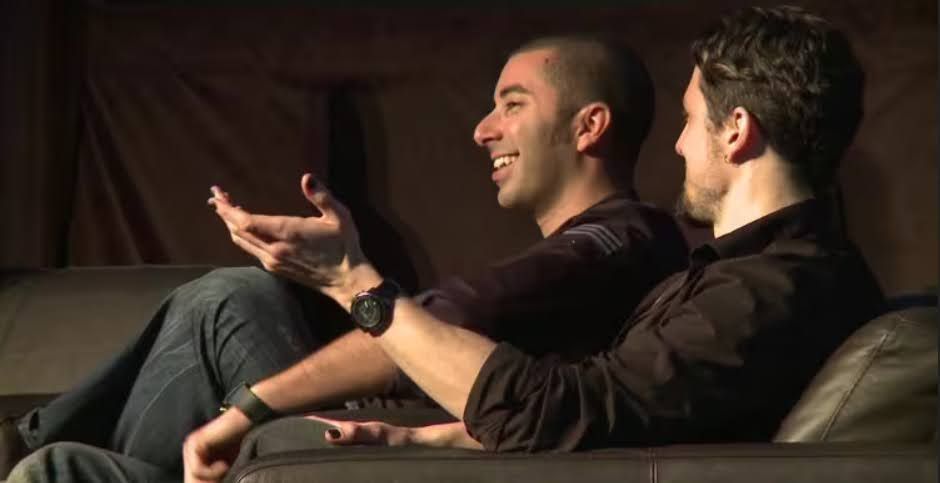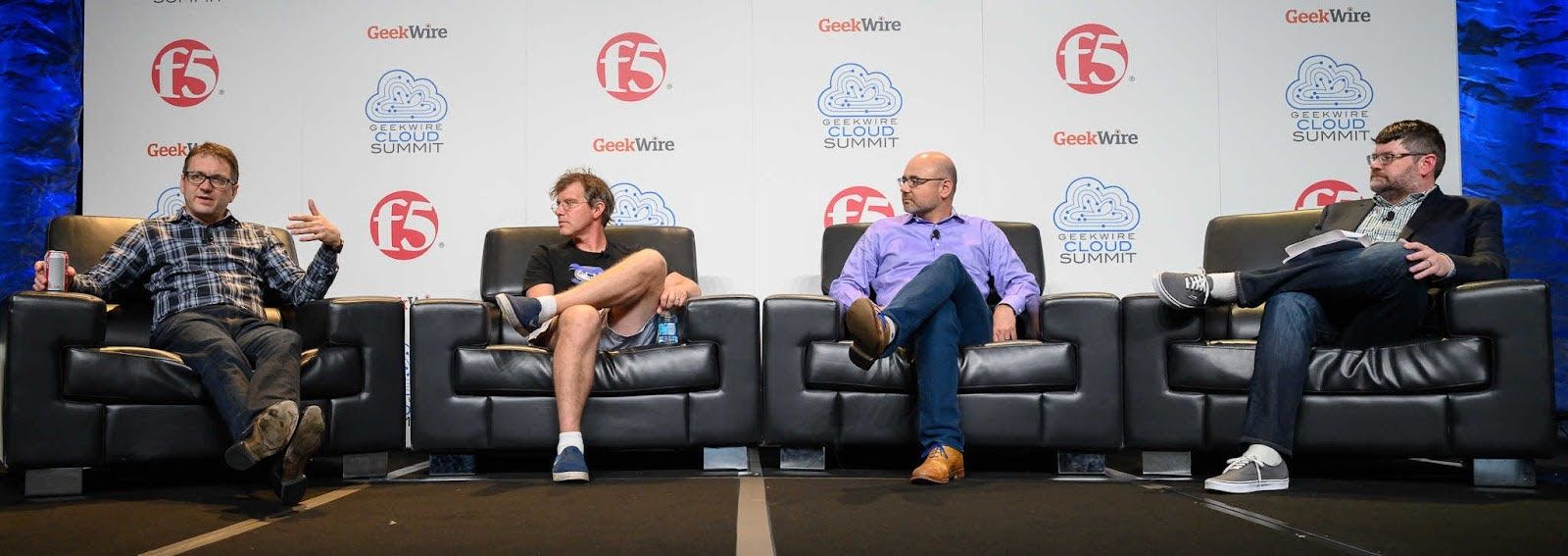How to Launch a Dev-First Startup: Day-to-Day Tactics
 Andrew ParkEditorial Lead
Andrew ParkEditorial Lead
Heavybit
Welcome to the third article in our definitive series on how to launch a developer-first startup, featuring advice from veteran founders. Get more time-tested insights from some of the most experienced founders in software here:
- How to Launch a Dev-First Startup from First Principles
- How to Launch a Dev-First Startup: Community & Leadership
- Technical & Cultural Learnings from 10 Years of Computing
Tactical and Day-to-Day Advice for Founders
In our continuing series of interviews in which startup leaders share decades of collective experience on foundational strategy and funding, we’ve also collected tactical insights into how to build and scale your startup (while maintaining your sanity). Here’s what this article covers:
I. Tactical and Day-to-Day Considerations
- Tooling and Infra: How to approach your team’s tooling
- Team and Hiring: Finding the right people to help you scale
- Managing Yourself: How to survive the rollercoaster of startup life
1. Tooling and Infra: How much to build and how much to buy
Early-stage startup life can seem like a race against the clock, especially when funding (and runway) is limited. So how much of your limited time and resources should your startup spend solving problems that other startups already tackled, productized, and constantly improving?
Heroku cofounder and Heavybit founding partner James Lindenbaum notes that one positive about starting a developer tool company today is the prevalence of advanced tools that solve many of the foundational challenges his teams faced. “There's a lot less mucking around with undifferentiated infrastructure just getting your product to work and scale, with everyone relearning the same lessons over and over again. When the market was nascent, you had to figure everything out yourself, learn from painful trial and error, and go out and talk to people about it.”

James Lindenbaum observes that the tooling market has matured in 15 years and that founders should take advantage of it. (Image courtesy Heroku)
Lindenbaum notes that 15 years ago, there were so few established conventions and tools in place that his team had to do a great deal of internal work just to get products off the ground. “At the time Heroku was started, we were still crawling around the floors of data centers and racking services. Amazon had just launched EC2 (not even AWS yet), and it barely worked. But as the market has expanded, people have taken best practices in increasingly focused domains and built them into products–PagerDuty and LaunchDarkly are great examples of this. And so I think a lot of that knowledge is more evenly distributed now and it's built into tooling. You can take advantage of others’ hard-earned lessons by adopting good tools.”
“As the market has expanded, people have taken best practices in increasingly focused domains and built them into products.” -James Lindenbaum, Cofounder/Heroku, Founding Partner/Heavybit
Fastly cofounder Simon Wistow also advises founders to scale faster by not reinventing the wheel. “There are a lot of tools out there. Start using them. As more and more people start using them, more people understand that there's value here. There are now companies that build tools–the pick axes for the miners. And the easier it is for miners to get pickaxes and shovels and spades, the easier it is for miners. For startups that create developer tools, we are the rising tide that lifts the boat.”
2. Team and Hiring: Finding the right people to help you scale
Are teams absolutely necessary to build? Tailscale cofounder David Crawshaw notes that with the expanding complexity comes the need for larger teams–and the rapidly decreasing likelihood of creating world-changing products by oneself. “Software has become more complex. There are more people involved in building it. 10 years ago, software was already a team sport.”
“Now it needs a bigger team. And that adds a lot of organizational and structural complexity to trying to solve problems in the software world. And I think that that may continue, as software will probably get more complex, making the people side of software more fundamental. It's really interesting because as the groups of people working on problems become larger, the complexity of the group increases too and you can solve problems you couldn't solve before. But also some problems are harder to solve now, and so it's going to add all sorts of bugs to the writing software and building businesses.”
Who are the right people to help make your startup dream a reality? Aside from finding people with the skill and knowledge to do what needs to be done, CircleCI CEO Jim Rose suggests finding people you can see yourself working and solving problems with for a long time. “The technology will change, the office changes, the various things around you will constantly be in flux. But if you find great partners and something that's motivating, a problem that will get you up in the morning and be excited to try and go solve it, then you're in a great spot.”

For Fastly’s Simon Wistow, being a founder isn’t about glamorous lifestyles. It’s about challenges, a bit of luck, and plenty of ups and downs. (Image courtesy Fastly.)
3. Managing Yourself: How to survive the rollercoaster of startup life
One of the absolute hardest, and least talked-about challenges in startup life is managing your own life, emotions, and sanity as a startup founder. Fastly’s Simon Wistow is no stranger to the ups and downs. “Being an entrepreneur turned into a super glamorous lifestyle–like the goal was to be seen as a big success, not to actually build something. Because of that, and because of survivorship bias, as a founder, when you're talking to the press, you only ever talk about sunshine and roses. ‘We rolled into a billion-dollar round because we're amazing and we're #CrushingIt.’”
“There's a million little obstacles, and you only get over them with blind optimism. And you need luck. You need the one customer who’s sitting next to you on a plane. And they’re the head buyer for a huge company, and maybe they say, ‘I like your moxie, kid!’ And then there's some bad luck that will happen. You've got to figure out a way of mitigating that, too.” -Simon Wistow, Cofounder/Fastly
“But you might be sitting there asking, ‘Why are they doing it? Why is it so easy for them? Am I doing something wrong? And the answer is no, everybody went through that. Some people just got lucky.” Wistow admits that startup success generally involves luck as well. “There's a million little obstacles, and you only get over them with blind optimism. And you need luck. You can ‘prepare for’ luck and you can mitigate against bad luck. It’s a bit like playing poker: It's a game of luck, but it's also a game of skill.”
“But there is some stuff that's going to come out of nowhere that you can't really prepare for. You can have your biggest customer suddenly go bust and not pay you. And then suddenly you can't make payroll and everything goes downhill. And you could have a global pandemic. You could have interest rates suddenly going through the roof. For anybody who says you don't need luck: You do. You need the one customer who’s sitting next to you on a plane. And they’re the head buyer for a huge company, and maybe they say, ‘I like your moxie, kid!’ And they buy you, and that’s what can take you to the next level. You've got to be prepared for those bits of good luck. And then there's some bad luck that will happen. You've got to figure out a way of mitigating that, too.”
Emotionally, Wistow likens the life of a founder to the infamous Gartner hype cycle. “The ‘hype cycle’ applies to being a founder. You go through a moment where you think, ‘Oh my God, this is amazing!’ And then you go through the Trough of Disillusionment, and then you get to the Plateau of Productivity. What people don’t tell you is that it’s fractal. At every point in that curve, there’s a ‘mini-hype cycle,’ and ‘mini-cycles’ within those, so over the life of every company, every year, every month, every day, you’re at various points on that. It all stacks on top of each other.”

Heptio founder Joe Beda suggests that startup life is like skiing–sometimes, you just have to throw yourself down the mountain. (Image courtesy Geekwire)
Despite the highs and lows, it’s important to stay the course, even in uncertain or scary times. Heptio founder Joe Beda compares running a startup to learning how to ski. “I'm a horrible skier. I'm kind of a cautious skier. Every time I get to someplace where I can't see, I stop, and I look, and then I decide to go down.”
“That's not the right way to ski. And that's not the right way to actually do a startup, either. Ultimately, you have to just keep moving, even if you're not sure of what's going to happen, and throw yourself down that mountain, and know that you're going to end up okay at the end.”
Read more advice on how to found a developer-first startup here:
- How to Launch a Dev-First Startup: First Principles
- How to Launch a Dev-First Startup: Community & Leadership
Get more learnings from a decade of software development from successful founders and community leaders in our 10-year retrospective.
Content from the Library
Advantages of Open Source Software for Devs and Companies
Advantages of Open Source Software for Devs and Companies Open-source software (OSS) advantages include lower starting costs,...
Platform Builders Ep. #3, Building Platforms in the AI Era with Ben Rubin of Verify
In this episode of Platform Builders, Christine Spang and Isaac Nassimi chat with Ben Rubin about the evolution of software...